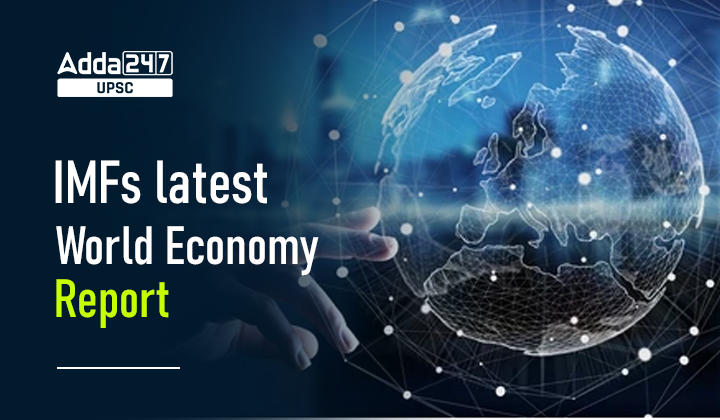Table of Contents
Why in news
- The International Monetary Fund’s latest World Economic Outlook report has slashed India’s economic growth forecast to 6.8% for 2022.
- In July 2022 the IMF projected a 7.4%, growth rate for the Indian Economy.
What is World Economic Outlook (WEO)?
- The World Economic Outlook (WEO) is a survey report by the International Monetary Fund, published twice a year.
- The report provides analysis and forecasts of economic developments and policies in member countries of IMF.
- The report encapsulates the state of the global economy and highlights risks and uncertainty that could threaten growth.
- The IMF surveys economists and other experts twice a year to publish the WEO report, in the months of April & October.
IMF’s Forecast on Growth
- The IMF has sharply cut the forecast for global growth — from 6.0 per cent in 2021 to 3.2 per cent in 2022 and 2.7 per cent in 2023.
- Barring the global financial crisis of 2008 and the sharp fall immediately after the Covid-19 pandemic in 2020, this is the weakest growth profile for the world since 2001.
IMF’s Forecast on Inflation
- Global inflation is now expected to peak at 9.5 per cent in late 2022.
- It is expected to remain elevated for longer than previously imagined and is likely to decrease to 4.1 per cent only by 2024.
What IMF projected for India?
- In its October edition of the World Economic Outlook report, the IMF has said that India’s growth forecast has been slashed to 6.8% in 2022.
- This is due to a weaker than expected outturn in the second quarter and more subdued external demand.
- For the next year 2023, India has been projected to grow at 6.1%.
How does the World Economic Outlook report matter for India?
- At first glance, India appears better placed. India’s GDP growth rate is better and inflation (7.41 per cent in September 2022) is not as high.
- However, India is barely out of the contraction it suffered in 2020 due to the Covid-19 pandemic.
- The country was home to the most people (5.6 crore, according to World Bank) pushed below abject poverty in 2020.
- India faces the following four major challenges which hamper her growth trajectory –
- Higher crude oil and fertiliser prices will spike domestic inflation;
- Global slowdown will hurt exports, dragging down domestic growth and worsening the trade deficit;
- A strong dollar will put pressure on the rupee’s exchange rate, which will likely result in reducing its forex reserves and reducing the capacity to import goods when the going gets tougher;
- Given the low demand among most Indians, the government might be forced to spend more towards providing basic relief in the form of food and fertiliser subsidies.



 TSPSC Group 1 Question Paper 2024, Downl...
TSPSC Group 1 Question Paper 2024, Downl...
 TSPSC Group 1 Answer key 2024 Out, Downl...
TSPSC Group 1 Answer key 2024 Out, Downl...
 UPSC Prelims 2024 Question Paper, Downlo...
UPSC Prelims 2024 Question Paper, Downlo...




